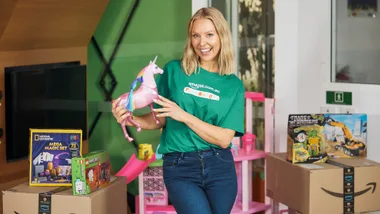Do you remember what it was like to get pocket money? You might’ve got 50 cents a week, if you were lucky, to save up for that toy you so desperately wanted. These days the amount and frequency of pocket money has become more like a bank formula than a simple savings idea.
When to start?
This will vary for each child but it is something you should prepare for long before you think you will need to start handing over the cash to you baby. A general rule to follow is they are ready when they understand the concept of money and that is needed to buy things.
If they still think mummy and daddy have a tree out the back that grows money, it is probably not time for them to start getting pocket money. If they start wanting things, more than just a chocolate bar at the cash register, such as toys or DVDs and they comprehend that they cannot just have it on demand, then they could be on their way to starting a savings account with the Mum & Dad Building Society.
How much?
This will depend on the financial situation of your family. Do not be swayed by how much other children are getting or how much your child wants, you need to choose an amount you commit to giving each week or fortnight. This will help your child understand that they will have to wait until the next payment before they can get more money and also could help them work out how many more weeks they need to buy a certain toy.
How do you encourage saving?
Pocket money is the first experience your child will have with money. It’s a very grown-up scenario, so they need to understand that it is a serious process and often a challenge to save it up. Putting the money in a clear (sealed) jar in sight can help as the child will see the pot getting full and make the achievement of saving more real.
You will need to have a talk with your child to help them understand what their pocket money is for, and not for. They might choose to spend it on Friday lunch from the school canteen but it should not replace a daily meal from home. Also it might cover a bus trip to the shops or beach but should not be the daily bus fare to school.
Paying your children for helping around the house can create a more complex issue and could lead to bargaining in order to get more money rather than encouraging to help around the house simply because they are part of the family.
However you choose to work out the pocket money situation make sure, like all money issues, it does not become a drama each week!
Your say: Do your children get pocket money? How did you sort out how much and when to pay them?
Related video: TODAY talks pocket money





.png?resize=380%2C285)





